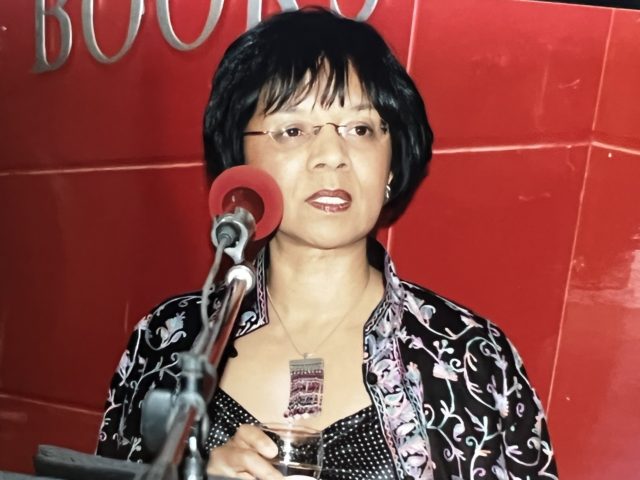The late feminist and anti-apartheid activist Rhoda Kadalie, who died in April, led the fight to include abortion rights in the South African Constitution, but became more skeptical of the pro-choice movement once she arrived in the U.S.
The reason: Kadalie presumed that a woman’s right to an abortion would apply to the early stages of pregnancy, and was shocked by the insistence among American pro-choice activists that abortion should be available up to the moment of birth itself.
“I’m 150 percent pro-abortion,” Kadalie said in 1996. “Women have had abortions for centuries and in a country like ours where many women don’t have a choice when it comes to contraception, they have a right to abortion if they choose it.” [1]
Kadalie publicly debated Christian conservatives, including African Christian Democratic Party (ACDP) leader Rev. Kenneth Meshoe. The daughter of a prominent pastor, Kadalie was able to enlist Biblical arguments in favor of her position.
Her argument was that given the endemic violence against women in South African communities — of every color — and the frequency of rape, plus the horrific conditions in which illegal abortions were often performed, abortion was an act of mercy.
She accused pro-life activists of acting in a sprit of vengeance, more concerned with punishing women for premarital sex than in addressing the welfare of poor women who were forced into pregnancy and could not support a child financially.
Thanks to Kadalie and other feminists, the right to abortion was included in the Bill of Rights in South Africa’s new, post-apartheid constitution as the “right to bodily integrity“:
Everyone has the right to bodily and psychological integrity, which includes the right
a. to make decisions concerning reproduction;
b. to security in and control over their body; and
c. not to be subjected to medical or scientific experiments without their informed consent.
But Rhoda’s perspective began to shift in the U.S.
Before retiring to the Los Angeles area in 2018, she had already been a keen observer of American politics for many years, and predicted that Donald Trump would winning 2016 when few others did.
Kadalie rejected the so-called “Women’s March,” which held demonstrations in Washington, DC, and across the U.S. on January 21, 2017, to oppose President Trump as soon as he took office, declaring him illegitimate from the outset.
Pushing back against critics, she wrote in a Facebook post:
South African feminists condemning me for not liking Hillary Clinton and for opposing this women’s march. They are glaringly oblivious of their own undemocratic stances of opposing Trump when they supported the Clintons and their sordid lives. … Banging on about Planned Parenthood that sold body parts of fetuses for stem cell research. You don’t understand the first principle of democratic competition and the role of opposition.
Four years later, in a column for the online Afrikaans publication Maroela Media, Rhoda criticized the Democratic Party’s radical stance on abortion, which had shifted to “late-term abortion”: “As the party of the welfare state, Democrats view voters as clients, as dependents, who must be eternally grateful to government for saving them. … Demands, not only for taxpayer’s funds for contraceptives and abortion, but also for late-term abortion have become institutionalised.”
Privately, Kadalie told this author (her son-in-law) that she was shocked by late-term abortion. Though she would not call herself “pro-life,” she had been alienated by the pro-choice movement’s seeming indifference to the possibility that the fetus might be a child.
If today’s protests against the looming reversal of Roe v. Wade (1973) have been somewhat more muted than expected, Rhoda’s shift might contain the clue: late-term abortion is a bridge too far, even for some pro-choice women.
[1] Sharon Sorour. “Rhoda Kadalie: Born to Lead.” Femina, Jun. 1996. p. 78.
Joel B. Pollak is Senior Editor-at-Large at Breitbart News and the host of Breitbart News Sunday on Sirius XM Patriot on Sunday evenings from 7 p.m. to 10 p.m. ET (4 p.m. to 7 p.m. PT). He is the author of the forthcoming biography, Rhoda: Comrade Kadalie, You Are Out of Order!. He is a winner of the 2018 Robert Novak Journalism Alumni Fellowship. Follow him on Twitter at @joelpollak.

COMMENTS
Please let us know if you're having issues with commenting.